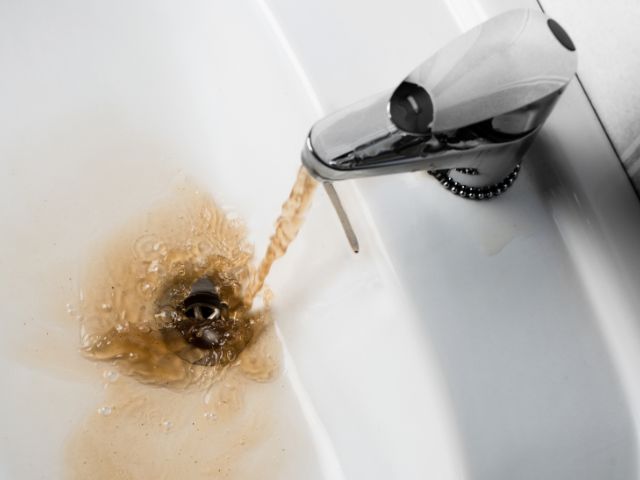

Your home’s water systems affect different aspects of your life, from cooking and cleaning to taking care of your hygiene. As a prominent part of your daily routine, water that’s free of contaminants is essential. Consequently, any changes to your water access have a huge impact. Having rusty, discolored water when brushing your teeth or taking a shower sparks a lot of concern.
Rust is iron oxide, the result of iron reacting with the oxygen in water. Although EPA water regulations categorize iron contaminants as a non-harmful secondary standard, they still cause concerns like unwanted cosmetic and aesthetic effects. Here’s what to do when there’s rust in your water and how to return to enjoying clean plumbing.
No matter where you get your water from—a private well, the public water supply, lakes, or rain—all water resources that go into homes risk exposure to different impurities, including rust. Just as they get rid of other contaminants, such as sediment, large debris, and some forms of bacteria, filters can remove rust from water. They purify and prevent various impurities from ruining your water. Installing water filters ensures that you have rust in your water systems removed before it reaches you and serves your different needs.
Hard water is the result of too much mineral buildup. It leaves residues on your dishes and shower walls, makes your hair and skin dry, and leads to clumped detergent stuck on your laundry. Although calcium and magnesium are the major components of hard water, rich iron content is also common in it.
Water softener systems operate similarly to filters but mainly focus on removing minerals. They use a process called ion exchange that attracts and traps minerals, filtering them out of your water supply and leaving your water soft. Investing in a water softener system prevents rust due to iron buildup and removes other minerals that degrade your water quality.
One of the many signs it’s time to replace your water heater is rusty water, which occurs because of many culprits, including natural mineral deposits and bacteria growth. Corroded pipes and water tanks also commonly cause rusty water.
Filters and softeners remove rust from your water, but in a case where the root cause is a corroded water system, they only provide a temporary solution. Replacing your water systems, from the pipes to the tanks, entirely takes away the source of rust production. It eliminates the root cause of your problem, preventing rust buildup in the future.
Rusty water creates stains, looks visually unappealing, and increases damage to your plumbing. There are many things you can do when there’s rust in your water, from installing filters and softeners to replacing pipes and water tanks. Remove rust from your water supply and enjoy the benefits of clean water again.
24World Media does not take any responsibility of the information you see on this page. The content this page contains is from independent third-party content provider. If you have any concerns regarding the content, please free to write us here: contact@24worldmedia.com
